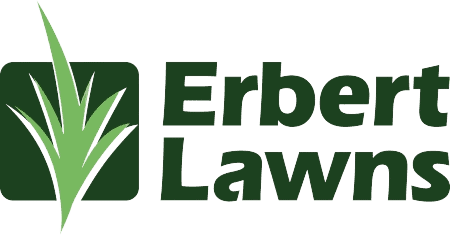When it comes to nurturing your green haven, Erbert Lawns believes in the power of nature’s touch. We understand that maintaining a lush and vibrant lawn is a testament to your commitment to a healthy environment. One way to achieve this is through the use of organic fertilizers. In this exploration of organic fertilizers, we delve into their benefits and drawbacks, helping you make informed decisions for your verdant spaces.
- The Benefits of Going Organic
- The Downsides of Organic Options
- Making The Right Choice for Your Lawn
- Deep Dive into Organic Fertilizer Benefits
- Understanding The Challenges
- Balancing Organic and Synthetic Fertilizers
- The Role of Composting in Organic Lawn Care
- Organic Fertilizers and Lawn Aesthetics
- The Future of Organic Lawn Care
- Expert Guidance for Your Lawn
- Embracing Organic Lawn Care
- Your Partner in Organic Lawn Care
- Conclusion
- Frequently Asked Question
The Benefits of Going Organic
- Environmental Friendliness: Organic fertilizers are derived from natural sources, making them eco-friendly. They reduce chemical runoff and soil contamination, contributing to a healthier ecosystem.
- Improves Soil Structure: These fertilizers enhance soil fertility over time, promoting the growth of microorganisms essential for a healthy lawn.
- Safe for Pets and Children: Organic options are generally safer for families and pets, reducing exposure to harmful chemicals.
- Long-Term Cost Efficiency: Although initially more expensive, organic fertilizers can be more cost-effective in the long run by improving soil health and reducing the need for frequent applications.
The Downsides of Organic Options
- Slower Results: Unlike synthetic fertilizers, organic options release nutrients slowly, meaning it can take longer to see visible improvements in your lawn.
- Inconsistent Nutrient Levels: The nutrient composition in organic fertilizers can vary, making it challenging to provide a consistent nutrient balance for your lawn.
- Potential for Weed Growth: Some organic products may contain weed seeds, inadvertently introducing weeds to your lawn.
- Odor Issues: Organic fertilizers often have a strong odor, which can be unpleasant for some homeowners.
Making The Right Choice for Your Lawn
When considering organic fertilizers, it’s crucial to weigh these pros and cons. Your lawn’s specific needs, your environmental concerns, and your budget all play a role in this decision. Explore our lawn care services to find the best fit for your lawn. Additionally, you can delve deeper into the world of fertilizers and their impact on the environment by visiting The Fertilizer Institute for valuable insights.
Deep Dive into Organic Fertilizer Benefits
- Enhanced Soil Life: Organic fertilizers contribute significantly to a vibrant soil ecosystem, a key aspect often highlighted by the Soil Association. By nourishing the soil with organic matter, these fertilizers foster a habitat teeming with beneficial microbes and earthworms. This biodiversity is crucial for nutrient cycling and soil aeration, leading to robust lawn growth.
- Gradual Nutrient Release: The slow release of nutrients is a hallmark of organic fertilizers. This gradual process mirrors nature’s rhythm, providing a steady supply of nutrients as plants need them, thereby reducing the risk of nutrient leaching and environmental pollution.
- Root Development and Drought Resistance: Organic fertilizers not only feed the grass but also fortify the root system. Stronger roots delve deeper, enhancing the lawn’s resilience against drought and temperature extremes. This deep rooting also helps in better water absorption, reducing the need for frequent watering.
Understanding The Challenges
- Application Precision: One of the challenges with organic fertilizers is the precision of application. Due to their variable nutrient content, it’s crucial to understand the specific needs of your lawn. Over-application can lead to nutrient imbalances, while under-application might not deliver the desired results.
- Seasonal Considerations: The effectiveness of organic fertilizers can be influenced by seasonal changes. For instance, cooler temperatures in fall and spring can slow down microbial activity, affecting the nutrient release rate. Understanding these seasonal dynamics is key to optimizing your lawn care regimen.
- Addressing Weed and Pest Issues: While organic fertilizers contribute to overall lawn health, they might not directly combat weed and pest problems. Integrating organic weed and pest management strategies is essential for a comprehensive approach to lawn care.
Balancing Organic and Synthetic Fertilizers
For some lawns, a hybrid approach that combines the benefits of both organic and synthetic fertilizers might be the most effective strategy. This balanced approach can provide the quick-acting benefits of synthetic fertilizers while building long-term soil health with organics.
The Role of Composting in Organic Lawn Care
Composting plays a pivotal role in organic lawn care, emerging as a key theme in our blog discussions. This natural process transforms kitchen and garden waste into a nutrient-rich supplement, enhancing the effectiveness of commercial organic fertilizers.
Organic Fertilizers and Lawn Aesthetics
A common misconception is that organic lawn care compromises on aesthetics. However, with the right approach, organic fertilizers can yield a lawn that’s not only healthy but also visually stunning. The key lies in understanding the specific needs of your lawn and tailoring the organic care accordingly.
The Future of Organic Lawn Care
As environmental awareness grows, the trend towards organic lawn care is gaining momentum. Innovations in organic fertilizer formulations and application techniques are making it increasingly feasible for homeowners to maintain beautiful lawns without relying on synthetic chemicals.
Expert Guidance for Your Lawn
At Erbert Lawns, we recognize that every lawn is unique. Our team of experts is equipped to provide tailored advice, helping you navigate the world of organic fertilizers. Whether you’re a seasoned green thumb or new to lawn care, we’re here to support your journey towards a healthier, more sustainable lawn.
Embracing Organic Lawn Care
Transitioning to organic lawn care is a journey of discovery and learning. It’s about understanding the rhythms of nature and aligning your lawn care practices with these natural processes. By choosing organic fertilizers, you are not only nourishing your lawn but also contributing to the environment.
Your Partner in Organic Lawn Care
Erbert Lawns is more than just a lawn care service; we’re your partners in creating and maintaining a lawn that brings joy and value to your home. Our commitment to excellence, combined with our deep understanding of organic lawn care, makes us the ideal choice for those seeking a greener, more sustainable approach to lawn maintenance.
Conclusion
Choosing the right fertilizer is crucial for the health and beauty of your lawn. At Erbert Lawns, we’re here to guide you through these choices. Whether you’re leaning towards organic or synthetic, our team of experts is ready to assist. Get in touch with us today to ensure your lawn remains a lush, vibrant oasis.
Frequently Asked Question
Q1: What are the main ingredients in organic fertilizers?
Organic fertilizers typically contain plant, animal, or mineral sources, such as compost, manure, bone meal, and seaweed.
Q2: How often should I apply organic fertilizer to my lawn?
This depends on the product and your lawn’s needs. Generally, it’s less frequent than synthetic fertilizers.
Q3: Can organic fertilizers burn my lawn?
They are less likely to cause burn compared to synthetic fertilizers due to their slow nutrient release.
Q4: Are organic fertilizers better for all types of lawns?
They can be beneficial for most lawns, but it’s essential to consider your lawn’s specific needs and soil type.
Q5: How do I switch from synthetic to organic fertilizers?
Gradually introduce organic fertilizers while reducing synthetic ones to allow your lawn to adjust.
Q6: Can I make my own organic fertilizer?
Yes, homemade compost is a popular and effective organic fertilizer option.










